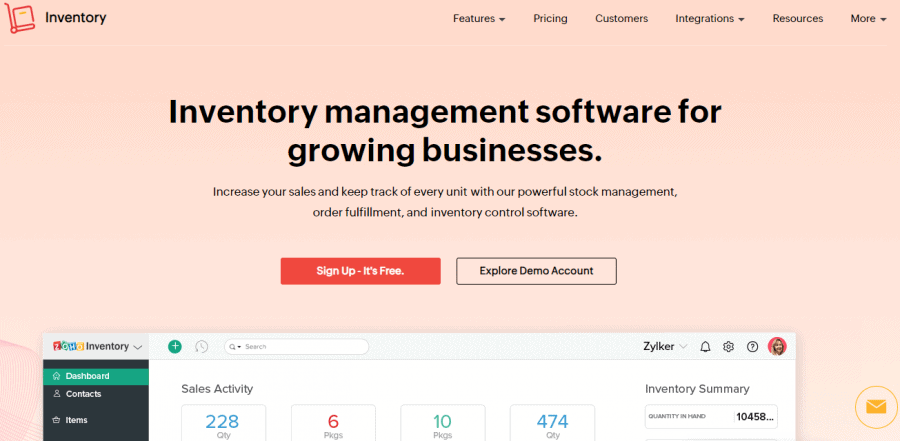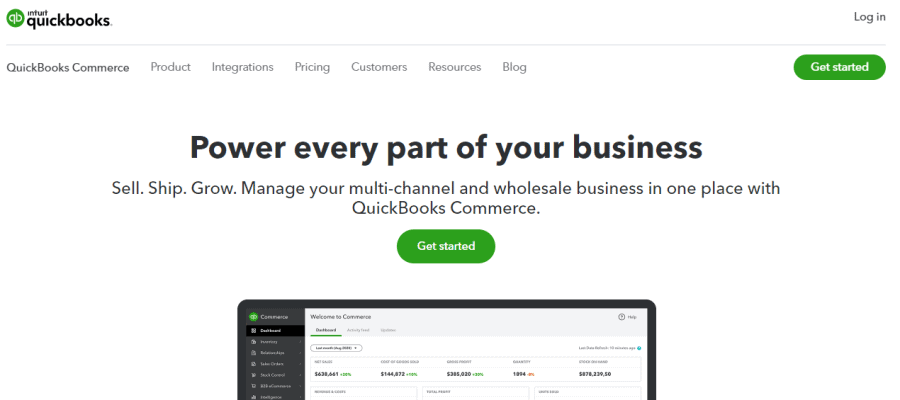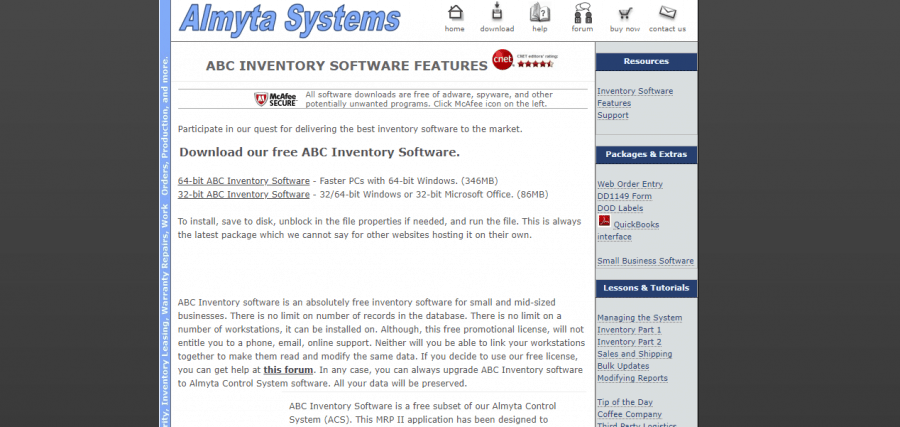The inventory management process can be a very demanding and challenging task, especially if you take care of a large amount of inventory in your company. To make this process much easier, you can find plenty of tools and software to provide you with automation and efficiency.
The available inventory management tools offer dozens of options such as creating an inventory list. Often this is leading users to confusion and the inability to choose the best tool. Also, these tools make it much easier to track products from the store to the warehouse. In this regard, in this article, we present to you a list of the six best inventory management tools, which can help you with your choice.
Let’s get started!
1. Cin7

So-called enterprise resource planning (ERP) platforms contain modules for each part of your business. Also, they require certain costs, making them costly tools and inaccessible to many companies. One of the best alternatives is a tool called Cin7. This tool is an all-in-one inventory management tool that offers many features.
Also, this tool was designed to adapt and simplify any business flow to task optimization to save time and minimize costs. You can even find built-in modules, from a fully built POS system, B2B features for e-commerce, production features, and many more.
2. Zoho Inventory

Zoho, an inventory management tool, contains many options that it can offer to its customers. It even offers an extensive free plan that gives a variety of options to users. Everything from drop shipping organization to even transaction management is available in multiple currencies for customers.
The original inventory management package contains many warehouses, users, monthly orders, and shipments. And it is vital to mention that they are all detailed warehouse management instructions and any additional delivery-related information provided. Easy integration of tools with multiple sales channels such as eBay, Etsy, Shopify, other e-commerce platforms, and CRM is also enabled.
3. QuickBooks Commerce (before known as TradeGecko)

When it comes to running a business that does not involve production and retail, then the services offered by TradeGecko are ideal for you. It was created and intended for multichannel brands, especially for wholesalers and distributors.
This tool will provide you the option of setting up B2B eCommerce, connecting to multiple sales channels like Amazon, WooCommerce. It will even offer you options of automation, product batch tracking, and much more. It is available in a free version where you benefit from unlimited access to all available features during the trial period.
4. ABC Inventory

One possible alternative to the tools mentioned earlier could be ABC Inventory.
This completely free tool offers the ability to manage multiple companies, warehouses, and currencies, create automatic orders and offers, and so on. You can convert all the data obtained with this tool to Excel, Word, HTML, or in the form of a text record. What may be a problem for some users is its low load speed and outdated interface.
5. Sortly

If you’re on the go a lot, and you need constant updates about inventory management information in your business, then Sortly is here for you. The platform, designed exclusively for working on the cloud, provides monitoring activities, locations, and audit trails.
An incredible feature is that it offers a built-in scanner that allows you to scan bar and QR codes offline. It can automatically connect to your account as soon as you connect to the Internet. You can use it on desktops and mobile devices.
6. Square

With Square, you can manage inventory online via your computer or mobile device. It is the best access point of sale system, including a complete set of tools for tracking inventory, unlimited products, and users. It also offers a platform for eCommerce.
- The options you can find on this platform are:
- Creating unique product categories,
- Adding images and descriptions,
- Tracking modifiers in the form of color or size of the product
Also, a great feature that is worth mentioning is the automation of stock shortage alerts.
Conclusion
Finally, it is essential to emphasize the importance of using inventory management tools and software. They will enable you to simplify the process and bring it to perfection without making mistakes.
Most of the mentioned software also offers the option of designing and customizing to your requirements.
When choosing the right software, it would be advisable to consider all the advantages and disadvantages. And lastly, always look for the ideal one adapted to your intention to use.
